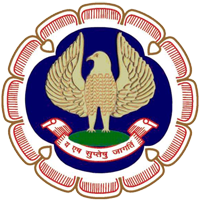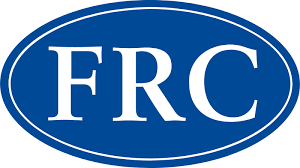
Accounting, also known as accountancy, is the measurement, processing, and communication of financial and non financial information about economic entities such as businesses and corporations. Accounting, which has been called the "language of business", measures the results of an organization's economic activities and conveys this information to a variety of users, including investors, creditors, management, and regulators. Practitioners of accounting are known as accountants. The terms "accounting" and "financial reporting" are often used as synonyms.

An audit is an "independent examination of financial information of any entity, whether profit oriented or not, irrespective of its size or legal form when such an examination is conducted with a view to express an opinion thereon.” Auditing also attempts to ensure that the books of accounts are properly maintained by the concern as required by law. Auditors consider the propositions before them, obtain evidence, and evaluate the propositions in their auditing report.

A 'financial audit' is conducted to provide an opinion whether "financial statements" are stated in accordance with specified criteria. Normally, the criteria are international accounting standards, although auditors may conduct audits of financial statements prepared using the cash basis or some other basis of accounting appropriate for the organisation. In providing an opinion whether financial statements are fairly stated in accordance with accounting standards, the auditor gathers evidence to determine whether the statements contain material errors or other misstatements.

The National Audit Office (NAO) is an independent Parliamentary body in the United Kingdom which is responsible for auditing central government departments, government agencies and non-departmental public bodies. The NAO also carries out value for money (VFM) audits into the administration of public policy.

Forensic accounting, forensic accountancy or financial forensics is the specialty practice area of accounting that investigates whether firms engage in financial reporting misconduct. Forensic accountants apply a range of skills and methods to determine whether there has been financial reporting misconduct.

Chartered accountants were the first accountants to form a professional accounting body, initially established in Scotland in 1854. The Edinburgh Society of Accountants (1854), the Glasgow Institute of Accountants and Actuaries (1854) and the Aberdeen Society of Accountants (1867) were each granted a royal charter almost from their inception. The title is an internationally recognised professional designation; the certified public accountant designation is generally equivalent to it. Women were able to become chartered accountants only following the Sex Disqualification (Removal) Act 1919 after which, in 1920, Mary Harris Smith was recognised by the Institute of Chartered Accountants in England and Wales and became the first woman chartered accountant in the world.

The auditor's report is a formal opinion, or disclaimer thereof, issued by either an internal auditor or an independent external auditor as a result of an internal or external audit, as an assurance service in order for the user to make decisions based on the results of the audit.
An information technology audit, or information systems audit, is an examination of the management controls within an Information technology (IT) infrastructure and business applications. The evaluation of evidence obtained determines if the information systems are safeguarding assets, maintaining data integrity, and operating effectively to achieve the organization's goals or objectives. These reviews may be performed in conjunction with a financial statement audit, internal audit, or other form of attestation engagement.

An external auditor performs an audit, in accordance with specific laws or rules, of the financial statements of a company, government entity, other legal entity, or organization, and is independent of the entity being audited. Users of these entities' financial information, such as investors, government agencies, and the general public, rely on the external auditor to present an unbiased and independent audit report.

Generally Accepted Auditing Standards, or GAAS are sets of standards against which the quality of audits are performed and may be judged. Several organizations have developed such sets of principles, which vary by territory. In the United States, the standards are promulgated by the Auditing Standards Board, a division of the American Institute of Certified Public Accountants (AICPA).

The Institute of Chartered Accountants of India (ICAI) is the World's second largest professional accounting body and largest professional accounting body of India under the ownership of Ministry of Corporate Affairs, Government of India. It was established on 1 July 1949 as a statutory body under the Chartered Accountants Act, 1949 enacted by the Parliament for regulating the profession of Chartered Accountancy in India.

The Financial Reporting Council (FRC) is an independent regulator in the UK and Ireland, responsible for regulating auditors, accountants and actuaries, and setting the UK's Corporate Governance and Stewardship Codes. The FRC seeks to promote transparency and integrity in business by aiming its work at investors and others who rely on company reports, audits and high-quality risk management.

The Institute of Internal Auditors (IIA) is an organization which advocates, provides educational conferences, and develops standards, guidance, and certifications for the internal audit profession.

International Standards on Auditing (ISA) are professional standards for the auditing of financial information. These standards are issued by the International Federation of Accountants (IFAC) through the International Auditing and Assurance Standards Board (IAASB). According to Olung M, ISA guides the auditor to add value to the assignment hence building confidence of investors.
A software audit review, or software audit, is a type of software review in which one or more auditors who are not members of the software development organization conduct "An independent examination of a software product, software process, or set of software processes to assess compliance with specifications, standards, contractual agreements, or other criteria".

Internal auditing is an independent, objective assurance and consulting activity designed to add value to and improve an organization's operations. It may help an organization accomplish its objectives by bringing a systematic, disciplined approach to evaluate and improve the effectiveness of risk management, control and governance processes. Internal auditing might achieve this goal by providing insight and recommendations based on analyses and assessments of data and business processes. With commitment to integrity and accountability, internal auditing provides value to governing bodies and senior management as an objective source of independent advice. Professionals called internal auditors are employed by organizations to perform the internal auditing activity.
Materiality is a concept or convention within auditing and accounting relating to the importance/significance of an amount, transaction, or discrepancy. The objective of an audit of financial statements is to enable the auditor to express an opinion whether the financial statements are prepared, in all material respects, in conformity with an identified financial reporting framework such as Generally Accepted Accounting Principles (GAAP).
An environmental audit is a type of evaluation intended to identify environmental compliance and management system implementation gaps, along with related corrective actions. In this way they perform an analogous (similar) function to financial audits. There are generally two different types of environmental audits: compliance audits and management systems audits. Compliance audits tend to be the primary type in the US or within US-based multinationals.
ISO/IEC 27006 is an information security standard published by the International Organization for Standardization (ISO) and the International Electrotechnical Commission (IEC). Part of the ISO/IEC 27000 series of ISO/IEC Information Security Management System (ISMS) standards, it is titled Information technology - Security techniques - Requirements for bodies providing audit and certification of information security management systems.
The chief audit executive (CAE), director of audit, director of internal audit, auditor general, or controller general is a high-level independent corporate executive with overall responsibility for internal audit.





